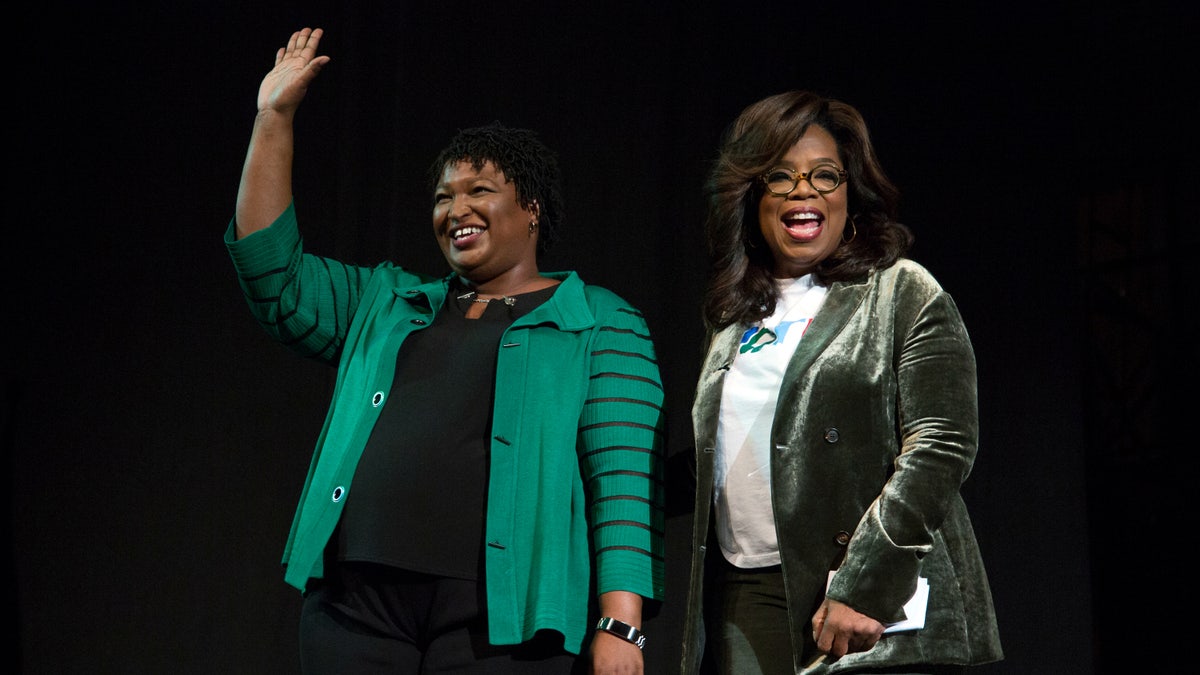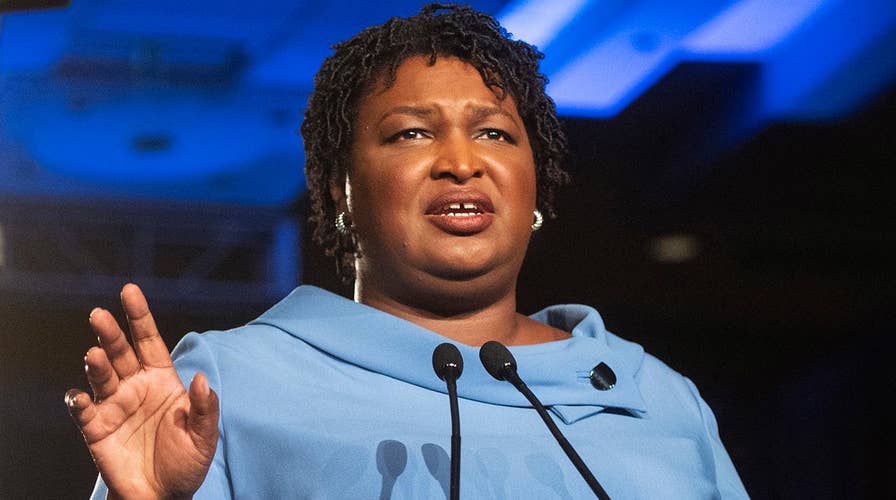Stacey Abrams, a former Georgia Democratic gubernatorial candidate, will have a special role in American history on Tuesday when she takes the national stage to deliver a response to President Trump's State of the Union address.
The Atlanta lawyer was hoping to become the first black female governor in the U.S. in November but ultimately came up short. The 45-year-old acknowledged she wouldn't be able to defeat her Republican opponent, Brian Kemp, after a 10-day dispute over votes — though she refused to publicly concede and promised to file a federal lawsuit challenging the “gross mismanagement” of the state’s elections.
Senate Minority Leader Charles E. Schumer, D-N.Y., revealed the Democratic party's choice for the rebuttal on Jan. 29, calling Abrams a "great spokesperson" and "incredible leader."
STACEY ABRAMS CHOSEN TO GIVE DEMOCRATIC RESPONSE TO TRUMP'S STATE OF THE UNION
"She has led the charge for voting rights, which is at the root of just about everything else. … I’m very excited that she’s agreed to be the respondent to the president,” Schumer reportedly told a crowd of journalists after the announcement.
Here's what you need to know about Abrams before she steps in front of the camera on February 5.
She's backed by famous Democrats

Oprah Winfrey takes part in a town hall meeting with Democratic gubernatorial candidate Stacey Abrams ahead of the mid-term election in Marietta, Georgia, U.S. November 1, 2018. (Reuters/Chris Aluka Berry)
Abrams was hoping to break a decades-old red streak of gubernatorial victories in the Peach State on Nov. 6, 2018. The state hasn't elected a Democratic governor since 1998. However, throughout her campaign, Abrams emphasized she didn't want people to support her based solely on those reasons.
“I don’t want anyone to vote for me because I’m black. And no one on the ballot needs a vote because we’re women. And I don’t even want you to vote for us just because we’re Democrats. You need to vote for us because we’re better," she once told a crowd.
EVERYTHING YOU NEED TO KNOW ABOUT TRUMP'S SECOND SPEECH TO CONGRESS
She was being backed by big-name celebrities and political heavyweights including Oprah Winfrey, Hillary Clinton and former President Barack Obama.
"Make history here in Georgia. Make things better here in Georgia," Obama urged a crowd of voters while endorsing Abrams at Morehouse College in Atlanta.
She's an "unapologetic liberal"
Abrams ran as an "unapologetic liberal," marked by her pledge to reverse Georgia Republicans' refusal to expand Medicaid insurance under Obama's 2010 health care law.
She was sworn-in to serve in the state legislature in 2007, working more than 10 years as a Democrat representing Atlanta. In 2010, she became the first woman to lead a party in the Georgia General Assembly and first African-American to serve as minority leader in the House of Representatives, according to her campaign website.
“I’ve been lucky. I’ve led a life that demonstrates difference is not a barrier to achievement," Abrams told Fortune Magazine in a June 2017 profile, noting she was inspired to run for governor after the outcome of the 2016 presidential election.
She filed a federal lawsuit
A group backed by Abrams filed a federal lawsuit in January saying Georgia deprived many low-income people and minorities of their voting rights with Secretary of State and gubernatorial candidate Brian Kemp overseeing the 2018 election.
Senate Democrats are now urging Abrams to run for Senate in 2020 against Republican Sen. David Perdue.
She's an award-winning romance novelist
The 45-year-old Yale Law School graduate is the co-founder of a financial services firm and award-winning romance author.
Under the pseudonym Selena Montgomery, Abrams has written eight romantic novels, selling more than 100,000 copies.
She worked tirelessly to complete her first book during her spare time as a student at Yale Law School. In October, Abrams told The Washington Post that writing the suspense thrillers prepared her for a career in politics.
"Leadership requires the ability to engage and to create empathy for communities with disparate needs and ideas. Telling an effective story — especially in romantic suspense — demands a similar skill set. Effective storytelling takes the reader into a life that is both familiar and foreign, enough of both to make space for others to feel empowered to tell their stories," she told the newspaper.
Fox News' Kaitlyn Schallhorn and The Associated Press contributed to this report.





